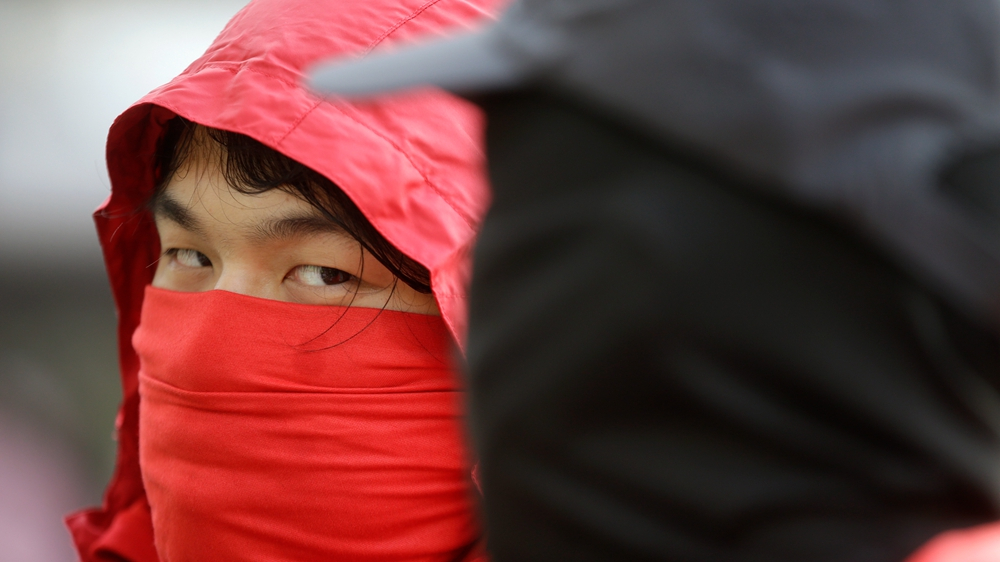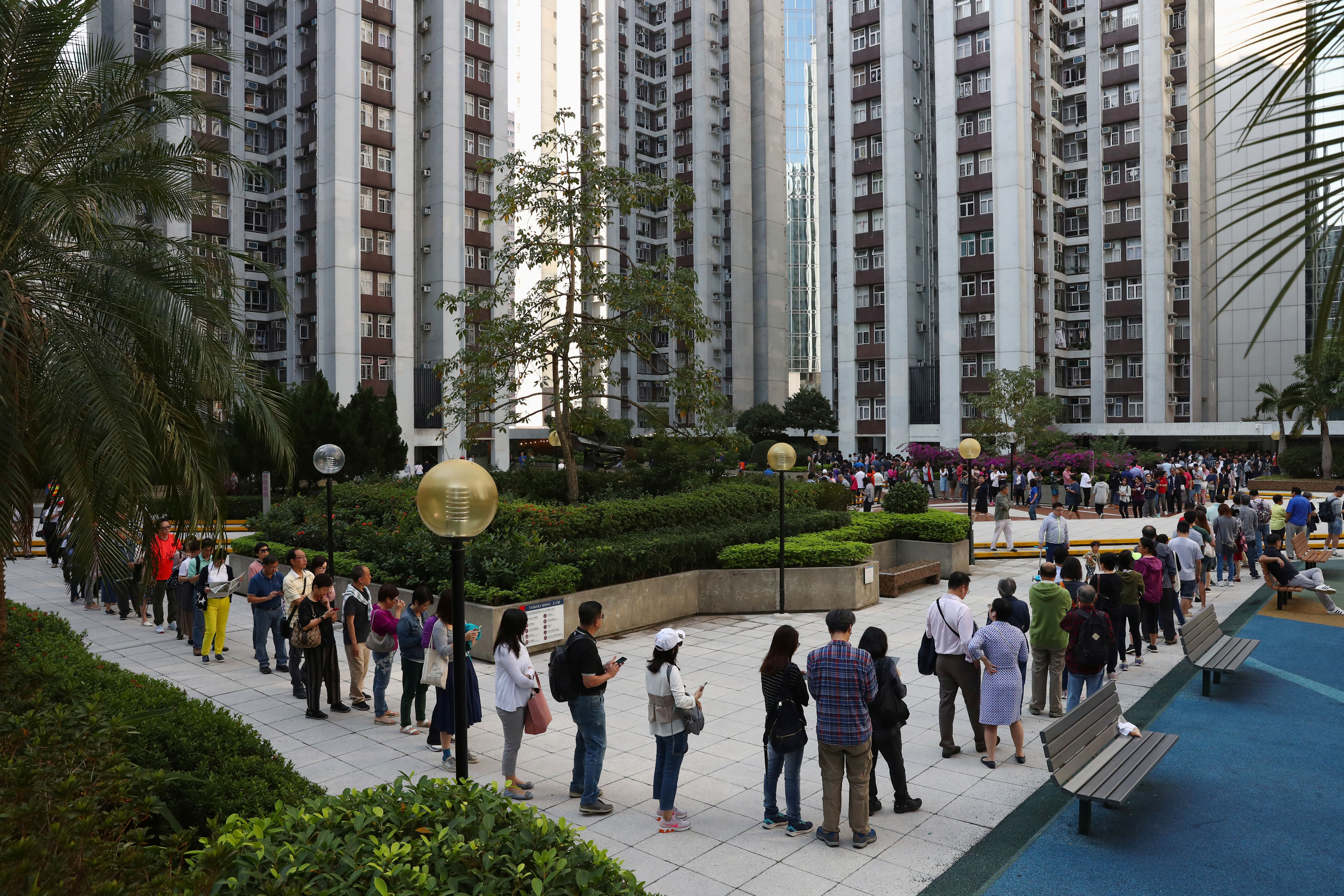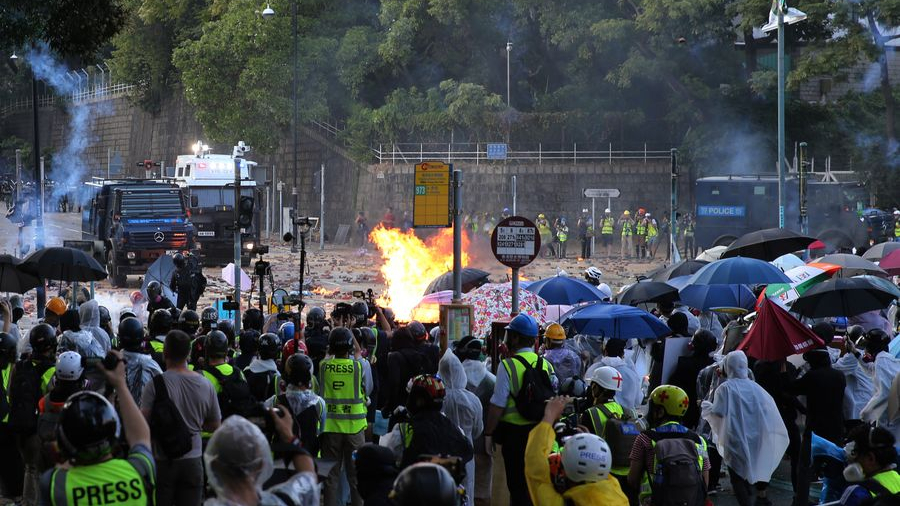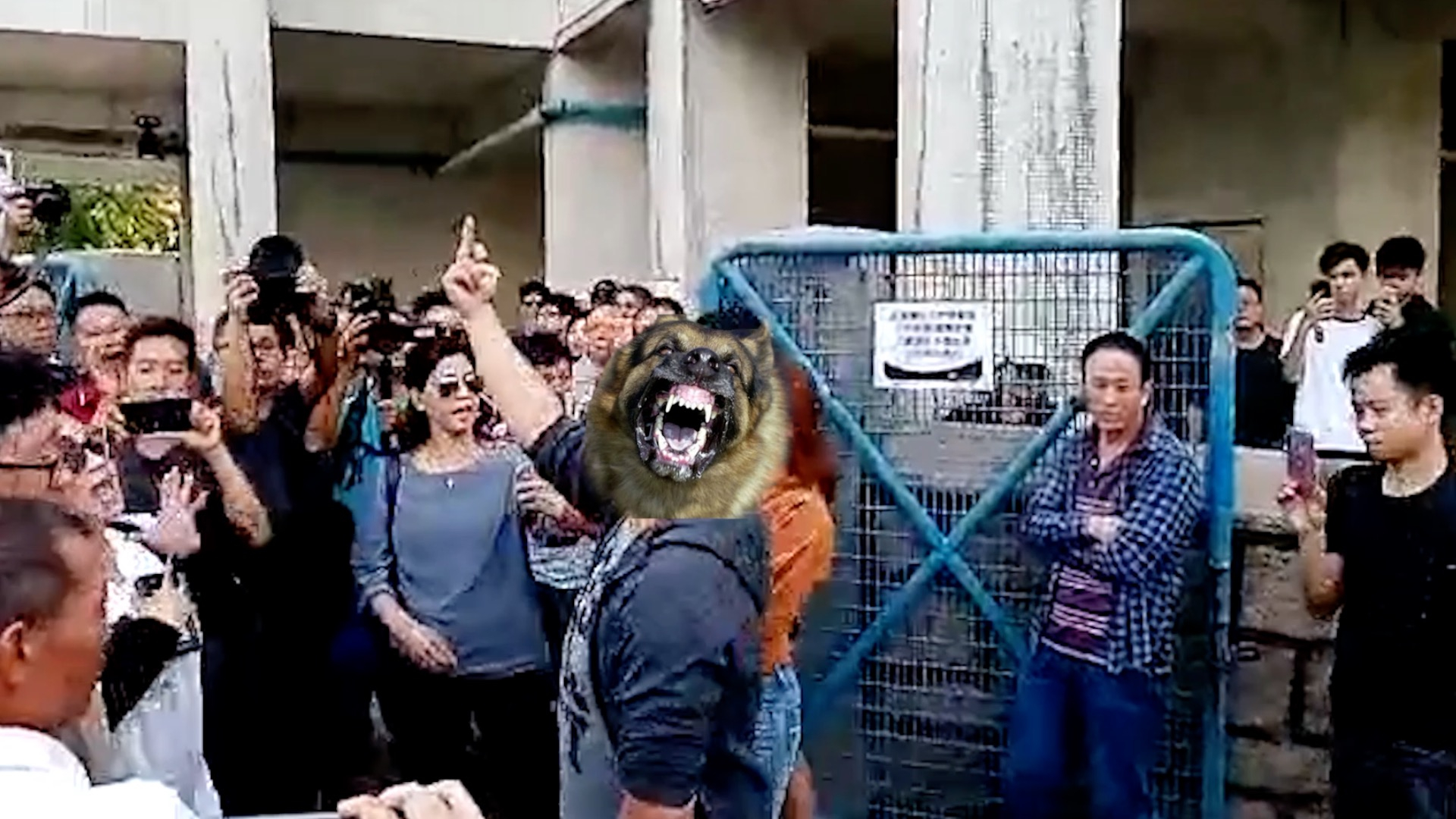
Protesters inside a Polytechnic University campus in Hong Kong, November 24, 2019. /AP Photo
Protesters inside a Polytechnic University campus in Hong Kong, November 24, 2019. /AP Photo
The Greek word "democracy" literally means "rule by people," or rather, the majority of people.
After months of unrest that has affected the lives of millions, divided families and battered the financial center's economy, Hong Kong residents are at least in agreement on the significance of the district council elections – they'll give the verdict on what the "silent majority" think.
In recent months, despite scenes of mayhem and reports of people being attacked for taking a stand, the riots in the Special Administrative Region (SAR) have been framed by some as a "pro-democracy" movement.
It doesn't get more democratic than a one-person-one-vote poll like Sunday's local elections.
Read more: Why Hong Kong's 2019 district council elections matter
Now widely regarded as a referendum on recent protests, as well as the government's handling of the situation, the low-level election this year has attracted unprecedented attention. A record 4.1 million residents, 60 percent of Hong Kong's population, registered to vote. According to the government's electoral registration office, young voters aged between 18 and 35 make up the biggest increases.

Hong Kong voters queue at a polling station Sunday morning to cast ballots in the district council elections, November 24, 2019. /Reuters Photo
Hong Kong voters queue at a polling station Sunday morning to cast ballots in the district council elections, November 24, 2019. /Reuters Photo
The HKSAR government urged all sides to ensure a timely and orderly election. After casting her vote Sunday morning, Chief Executive Carrie Lam appealed to the electorate to vote in accordance with their interests.
This year's campaign has been marred by violence and saw several pro-establishment candidates personally threatened and their offices, campaign booths and posters trashed. Junius Ho, an outspoken member of the Legislative Council and pro-establishment candidate, narrowly escaped death after being stabbed in the street while campaigning.
"There may be some changes in the political landscape, however we should not fear anything because we are quite confident that in Hong Kong we have a substantial majority of the population that supports a law-abiding society," Ho told CGTN.
The escalation of violence in recent weeks raised fears that the fairness of the elections could be jeopardized. A Hong Kong resident surnamed Chan told Xinhua News Agency that many of her neighbors were afraid to go out to vote if they saw black-clad protesters around. "They might terrorize or beat us," she said.
"Our neighborhood is mainly concerned about livelihood, so we'll elect a district councilor who strives for more benefits for the community. My vote is for the person who will do practical things and not make troubles," Chan said.
District council elections have traditionally favored pro-establishment candidates, who focused mainly on livelihood concerns. In the last election, the pro-establishment camp dominated 70 percent of council seats.
01:28

It has been speculated that the pan-democracy camp could be better positioned this time to flip the majority in the city's 18 local councils.
"Pan-democrats would push for the election, because they've had [the] upper hand so far. But they will keep distance with radical protesters right now since most HK residents don't like violence," Wang Lei, a law professor at Peking University told CGTN.
A video circulating online showed Ted Hui Chi-fung, a Democratic Party politician, while visiting the besieged Hong Kong Polytechnic University on Tuesday, was scolded and called a traitor by a protester sporting an American flag.
The radical protesters are locally known as the "lam chau." In Cantonese, it means to destroy and perish together, borrowing a quote from the "Hunger Games" book series. "If we burn, you burn with us."
"The 'lam chau' are the most radical protesters in the movement. They have little interest in elections and supporting opposition politicians. What they want is causing large-scale and continuous violence in Hong Kong," said Fang Jingzhi, a senior commentator from Ta Kung Pao.

Rioters set fire on roads outside of Hong Kong Polytechnic University, China, November 17, 2019. /Xinhua Photo
Rioters set fire on roads outside of Hong Kong Polytechnic University, China, November 17, 2019. /Xinhua Photo
In a post on his Facebook page on Tuesday night, former chief executive Leung Chun-ying wrote: "Peaceful demonstrators and the people in command behind the scene have publicly called for a stop to violent actions to make way for district council elections. This deals a serious blow to the morale of radical protesters."
On social media, some Hong Kong residents encouraged their friends and family to vote wisely. "The elections could be a turning point for our city," wrote Facebook user Robert Wong.
"The world will know whether Hong Kong people support violent 'protests,' or support the return of peace, harmony and civility to our city," Wong said, advising others to arrive early at the polling stations in order to avoid traffic disruptions or roadblocks.
Meanwhile, some users told others to prevent elderly people who usually support pro-establishment candidates from voting, by taking away their identity cards, sending them abroad and obstructing vehicles transporting them to polling stations.
00:58

Around mid-day on Sunday, more than one third of voters have cast their ballots, surpassing the total number of voters in the 2015 elections.
The record high turnout has been perceived by many as good news for the pan-democracy camp. However, that hasn't stopped rumors and wild conspiracy theories flying throughout the day of election. Some Twitter users are alleging the use of "bribes" by the pro-government side in exchange for elderly votes.
The irony though, is that those claiming to fight for Hong Kong's democracy appear to have little confidence in it.